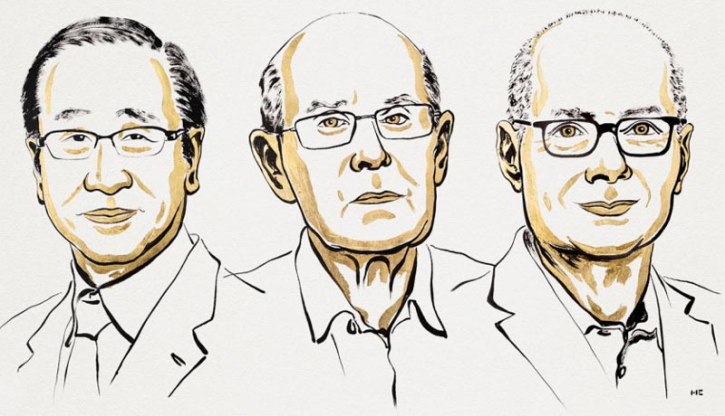Kitagawa, Robson and Yaghi win 2025 Nobel Prize in Chemistry

Japanese chemist Susumu Kitagawa, Australian researcher Richard Robson, and American scientist Omar Yaghi have jointly won the 2025 Nobel Prize in Chemistry for their groundbreaking development of metal–organic frameworks (MOFs) — an innovation that has revolutionized materials science and environmental chemistry.
The Royal Swedish Academy of Sciences announced the laureates on Tuesday (8 October), recognizing their decades-long collaboration and independent discoveries that enabled scientists to design highly porous crystalline materials with vast internal surface areas. The trio will share the prestigious award and its 11 million Swedish crowns (approximately $1.2 million) prize money.
“These scientists have opened an entirely new chapter in materials chemistry,” said Heiner Linke, Chairman of the Nobel Committee for Chemistry. “They created materials with enormous internal cavities — almost like tiny hotel rooms — that can trap, store, and release molecules at will. A spoonful of such material can hold extraordinary amounts of gas, much like Hermione’s handbag from Harry Potter.”
Metal–organic frameworks are hybrid structures composed of metal ions linked by organic molecules, forming vast 3D networks of nanoscale pores. These materials have remarkable applications — from capturing carbon dioxide and storing hydrogen and methane, to harvesting water from desert air, removing toxic gases, and even developing drug delivery systems.
Omar Yaghi, often regarded as one of the founders of reticular chemistry, has been instrumental in advancing MOFs as a platform for sustainable solutions. Susumu Kitagawa and Richard Robson’s early work laid the foundation for the design and synthesis of these highly tunable materials in the 1990s, setting the stage for what has become one of the fastest-growing research fields in modern chemistry.
The Nobel Committee noted that their discovery has profound environmental implications, particularly in tackling the climate crisis. MOFs’ exceptional ability to capture greenhouse gases and store clean energy sources could make them vital tools in the global transition to sustainability.
Since its inception in 1901, the Nobel Prize in Chemistry has honored scientific achievements that fundamentally reshape humanity’s understanding of the natural world. The 2025 award to Kitagawa, Robson, and Yaghi highlights the power of molecular design to address some of the planet’s most pressing challenges — from clean energy to climate resilience.
.png)









